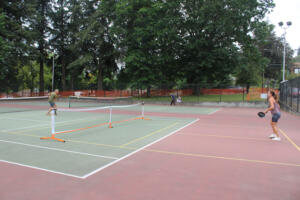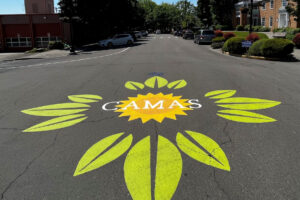Candidates running for city council and mayoral positions in Camas and Washougal turned out for the League of Women Voters of Clark County’s recent candidate forum, held Wednesday, Oct. 4, held at Vancouver Community Library, to speak to their strengths and comment on issues ranging from the need for more affordable housing and measures to address climate change to land-use planning, crime rates and engaging the public in local government.
Candidates present at the forum included:
- Camas Mayor Steve Hogan and his challenger, Randal Friedman;
- Washougal Mayor David Stuebe and his challenger, Gabriel Stone;
- Camas City Councilwoman Bonnie Carter, who is hoping to retain her Ward 2, Position 1 Council seat, and her challenger, Ry Luikens; and
- Camas residents Stephen Dabasinskas and John Svilarich, vying for the Camas City Council’s at-large position.
Following are highlights of the two-hour candidate forum, which is available for viewing online at cvtv.org.
Camas mayoral candidates address population growth, housing, recreation
Hogan and Friedman spoke about their reasons for running to be Camas’ next mayor before delving into some of the issues that will impact Camasonians today and into the future.
Hogan, who was a Camas City Council member for 16 years and has been the city’s mayor for the past two years, said he “inherited a big mess” when elected to Camas’ top elected position in 2021, but has managed to guide the city out of that “mess.”
“There were five key leaders of the organization that had left, and that I needed to replace,” Hogan said. “So I stepped up and, after filling positions of city administrator, community development director, information technology director, fire chief and police chief, we are pretty well stabilized. We can now move forward as a unit and perform well, in my opinion.”



